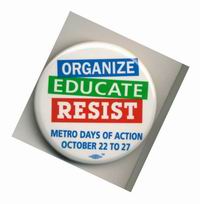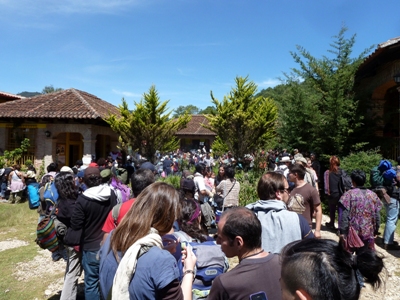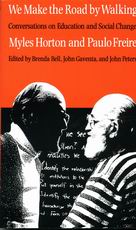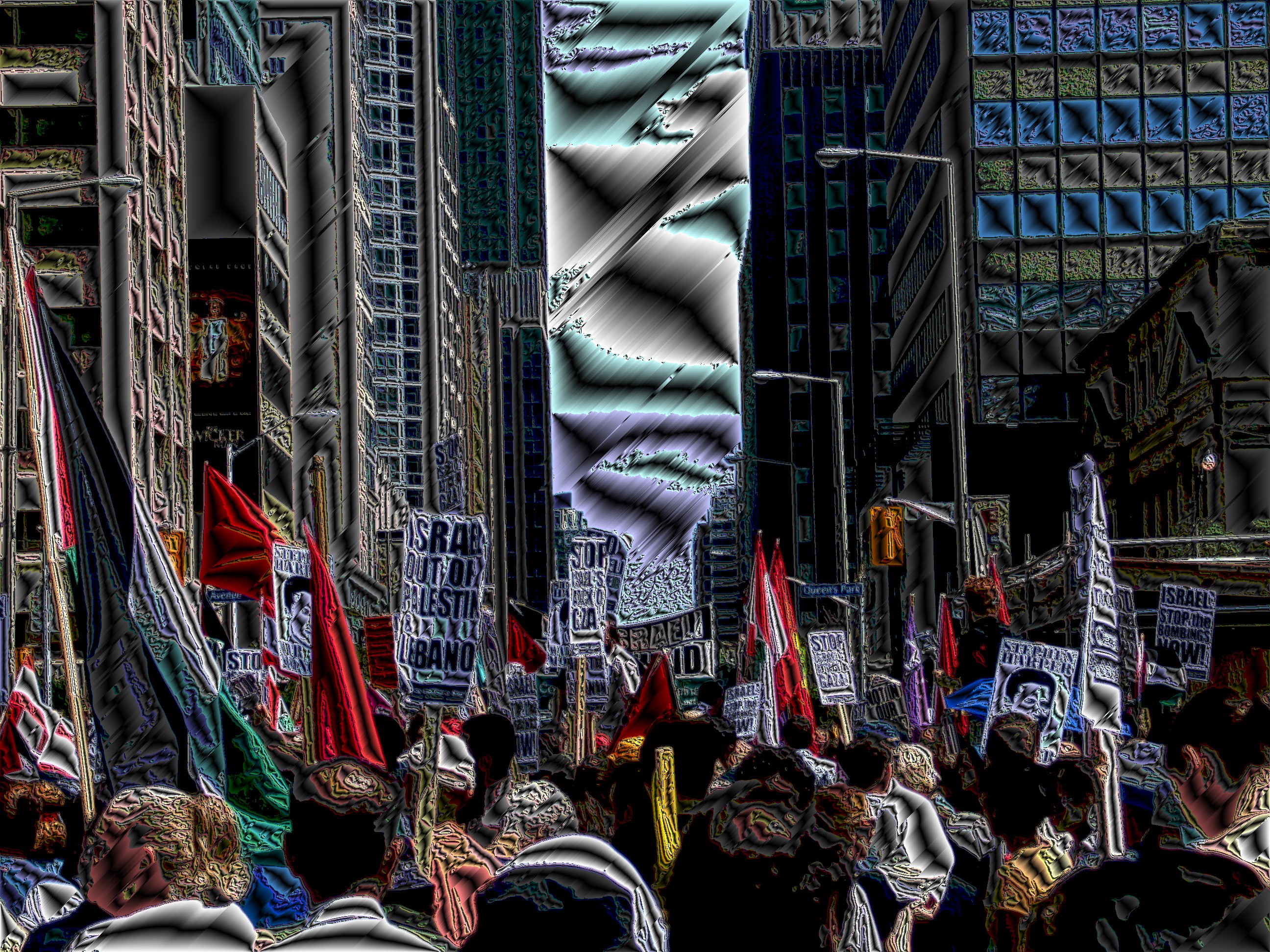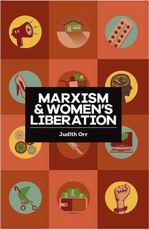Other Voices: The Connexions Newsletter
September 10, 2016
This Issue: Back to School
Education – about the world, and about social change in particular – is a key element in the work that Connexions does. In this issue of Other Voices, we explore a few aspects of the ways in which education and educational institutions are changing. We also look at ways in which education is used to bring about change.
George Monbiot shares his concerns about how children’s lives are increasingly lived indoors or looking at screens, while their experience of nature and the outdoors - once a significant part of children’s lives – is shrinking.
David Stratman casts a very critical eye on the so-called education reform movement that is transforming public education in the United States, Britain, and other countries. Another article looks at the devastating effects of the privatization of public education, specifically via charter schools.
Very different ideas about education animate the Escuelita Zapatista, a community-based educational gathering created by the Zapatistas in Chiapas, Mexico.
The widening gap between scholars working in academic institutions is the subject of two articles, “Academics can change the world -- if they stop talking only to their peers”, and another by the late Ellen Meiksins Wood on The Retreat of the Intellectuals.
As always, we invite you to share this newsletter with your friends. You can forward this email, or send them the link to the Other Voices home page on the Connexions website at www.connexions.org/Media/CxNewsletter.htm.
If you'd like to subscribe and receive this newsletter by email every two weeks, please use this form.
Your feedback is appreciated - and so are donations to keep us doing what we're doing!

Topic of the Week
Education
The entire Connexions website and Connexions archive are educational resources. Explore a few of the many materials related to education in the Subject Index under headings such as Education, Schools, School Reform, and Popular Education.
This Week on Connexions.org
Housebroken
George Monbiot worries about the removal of children from the natural world. “There is no substitute,” he says, “for what takes place outdoors; not least because the greatest joys of nature are unscripted.” “Studies in several nations show that children’s games are more creative in green places than in concrete playgrounds. Natural spaces encourage fantasy and roleplay, reasoning and observation. The social standing of children there depends less on physical dominance, more on inventiveness and language skills. Perhaps forcing children to study so much, rather than running wild in the woods and fields, is counter-productive.” Read more
Keywords: Children - Nature Education
School Reform and the Attack on Public Education
In this 1997 article, David Stratman warned that the so-called school reform movement which was then gathering steam in the United States and other western countries constitutes an attack on public education and on our children. According to Stratman, the "education reform movement" is part of a wider corporate and government plan to undermine democracy and strengthen corporate domination of our society. Its goal, he said is:
- not to increase educational attainment but to reduce it;
- not to raise the hopes and expectations of our young people but to narrow them, stifle them, and crush them;
- not to improve public education but to destroy it.
Keywords: Public Education - Education Reform
Charter Schools Increase Fraud, Corruption, Chaos, and Anarchy
Privatization in the neoliberal context cannot but give rise to the outrages taking place in the charter school sector (and other sectors). Everywhere, charter school laws are written in a manner to allow minimal oversight and many loopholes. This is not an aberration, accident, or the result of some “bad thinking” by otherwise “well-intentioned” legislators. The worsening economic conditions and contradictions in a decaying society necessitate greater lawlessness and impunity for the ruling elite. Read more
Keywords: Charter Schools - Privatization in Education
At the Escuelita Zapatista, Students Learn Community Organizing and Civil Resistance as a Way of Life
The Zapatistas brought more than 1,500 people into their communities to attend the Escuelita Zapatista, the Little Zapatista School. The Escuelita is not your typical school, in many ways. The teachers have no degrees, the textbooks do not cite prestigious academic predecessors, and the classrooms has no blackboards. Class was in session 24 hours a day and the question and answer period was open all the time. And, to be sure, the subject matter was out of the ordinary. Read more
Keywords: Popular Education - Zapatistas
Academics can change the world -- if they stop talking only to their peers
Research and creative thinking can help to change the world. This means that academics potentially have much to contribute to social change. But the overwhelming majority are not shaping today’s public debates. Instead, their work is largely sitting in academic journals that are read almost exclusively by their peers. An average journal article is read completely by no more than ten people. This suggests that a lot of important thinking and many potentially world altering ideas are not getting into the public domain. Why, then, are academics not doing more to share their work with the broader public? Read more
Keywords: Academics - Academic Fads & Fashions
Who's downloading pirated papers? Everyone
Researchers are increasingly turning to Sci-Hub (http://sci-hub.bz) the world’s largest ‘pirate’ website for scholarly literature. Sci-Hub is becoming the world’s de facto open-access research library. It is easy to understand why journal publishers might see Sci-Hub as a threat. It is as simple to use as Google’s search engine, and as long as you know the DOI or title of a paper, it is more reliable for finding the full text. Chances are, you’ll find what you’re looking for. Along with book chapters, monographs, and conference proceedings, Sci-Hub has amassed copies of the majority of scholarly articles ever published. It continues to grow: When someone requests a paper not already on Sci-Hub, it locates a copy and adds it to the repository. Read more
Keywords: Scholarly journals - Science & Society
Website of the Week
Highlander Center
Founded in 1932, Highlander (http://highlandercenter.org) serves as a catalyst for grassroots organizing and movement building. The founding principle and guiding philosophy of Highlander is that the answers to the problems facing society lie in the experiences of ordinary people. Those experiences, so often belittled and denigrated in our society, are the keys to grassroots power. Through popular education, participatory research, and cultural work, we help create spaces -- at Highlander and in local communities -- where people gain knowledge, hope and courage, expanding their ideas of what is possible. Find them here
Keywords: Organizing - Popular Education
Book of the Week
We Make the Road by Walking: Conversations on education and social change
By Myles Horton and Paulo Freire
Coming from different backgrounds, Myles Horton, the founder of the Highlander Folk School, and Freire, a Brazilian education leader, come together to share their views on the use of participatory education in bringing about social change. Read more
Keywords: Critical Pedagogy - Learning
Film of the Week
Working class cinema: a video guide
Libcom has prepared a guide to working class films and TV shows, showing class struggles, revolutionary situations and everyday lives. Find out more
Keywords: Film & Video - Working Life
Organizing
Critique of Nonviolent Politics: From Mahatma Gandhi to the Anti-Nuclear Movement
Howard Ryan accepts that sometimes nonviolence can be effective, but says that sometimes it is not: "a principled insistence on nonviolence can in some circumstances be dangerous to progressive social movements." He says that nonviolence theory "is troubled by moral dogma and mechanical logic." Read more
Keywords: Non-violence - Consensus decision-making
People's History
At the forefront of revolution
The gains won by the women’s liberation movement during the 1960s and 1970s, such as the right to divorce and increased reproductive rights, are real material gains. Women are told that in Britain we have never had it so good. And on the surface that can appear to be true. But, as Judith Orr points out in Marxism and Women’s Liberation, "much has changed for women, but too much has not". While "women have never had more freedom in their personal lives" women’s oppression still pervades society, and some aspects of sexism have got worse during the last decade. The situation facing women today falls far short of what women’s liberation sought to achieve. Read more
Keywords: Women’s liberation movement - Marxism and Feminism
From the Archives
The Uses and Abuses of ‘Civil Society’
In this essay, published in the 1990 edition of The Socialist Register’s issue on The Retreat of the Intellectual, the late Ellen Meiksins Wood writes that “We live in curious times. Just when intellectuals of the Left in the West have a rare opportunity to do something useful, if not actually world-historic, they - or large sections of them - are in full retreat.... many of us appear to be abdicating the traditional role of the Western left as critic of capitalism. Just when more than ever we need a Karl Marx to reveal the inner workings of the capitalist system, or a Friedrich Engels to expose its ugly realities 'on the ground', what we are getting is an army of 'post-Marxists' one of whose principal functions is apparently to conceptualize away the problem of capitalism. Read more
Keywords: Academic Fads & Fashions - Postmodernism
Connexions Calendar
September 17, 2016
Hamilton launch of Showdown!
Join Rob Kristofferson and Simon Orpana for the launch of the graphic novel Showdown! Making Modern Unions. Art from Showdown! is also part of the exhibit “Draw the Line! Graphic Histories of Work, Struggle and Activism” at the Workers Arts and Heritage Centre.
September 24, 2016
6th Annual Toronto Disability Pride March
Why we’re Marching:To bring recognition of the struggles and value of people with disabilities as we fight against ableism and other forms of oppression.To be visible and show that we have a voice in our community and a right to be heard by taking to the streets.To celebrate and take pride in ourselves as a community of people with disabilities.
September 24, 2016
Book launch: Facing the Anthropocene
Science tells us that a new and dangerous stage in planetary evolution has begun - the Anthropocene, a time of rising temperatures, extreme weather, rising oceans, and mass species extinctions. Humanity faces not just more pollution or warmer weather, but a crisis of the Earth System. If business as usual continues, this century will be marked by rapid deterioration of our physical, social, and economic environment. Connecting Earth System science and ecological Marxism, Ian Angus examines not only the latest scientific findings about the physical causes and consequences of the Anthropocene transition, but also social and economic trends that underlie the crisis.
September 27, 2016
Toronto launch of From Homophobia to Homonationalism, by Tim McCaskell
How did a social movement evolve from a small group of young radicals to the incorporation of LGBTQ communities into full citizenship on the model of Canadian multiculturalism?Tim McCaskell contextualizes his work in gay, queer, and AIDS activism in Toronto from 1974 to 2014 within the shift from the Keynesian welfare state of the 1970s to the neoliberal economy of the new millennium. A shift that saw sexuality - once tightly regulated by conservative institutions - become an economic driver of late capitalism, and sexual minorities celebrated as a niche.
The Connexions Calendar is an online calendar that exists to advertise events that support social justice, democracy, human rights, ecology, and other causes. We invite you to use it to promote your events. Adding events to the Connexions Calendar is FREE. We'll give you a username and password which you use to log on. Use the contact form to arrange for a username and password. Read more →
Seeds of Fire
September 12, 1837
Confrontation at Niagara-on-the-Lake
Hundreds of black Canadians confront British troops attempting to deport Solomon Moseby, an escaped slave from Kentucky, back to the United States. Slavery is illegal in the British Empire, so slaves who reach Upper Canada are supposed to be safe, but U.S. authorities have demanded that Moseby be deported back to the U.S. because he stole a horse from the slaveowner in order to escape. When news of the planned deportation becomes known in late August, blacks encircle the jail in Niagara-on-the-Lake in Upper Canada in order to prevent his removal. When the authorities make their move on September 12, the crowd attacks the troops guarding Moseby and enable him to escape. Two people are killed by the soldiers in the melee, and 40 are arrested.
September 14, 1867
Public of the first volume of Das Kapital
Writing more than a century later, Marshall Berman asked why Marx’s Capital has had such an enduring impact. He says “What makes Capital so exciting is that, more than anything else Marx wrote, it brings to life his vision of modern life as a totality. This vision is spread out on an immense canvas: more than a thousand pages in the first volume alone; hundreds of characters – shopkeepers and sharecroppers, miners and millowners, poets and publicists, doctors and divines, philosophers and politicians, the world-famous and the anonymous – speaking in their own voices.”
September 19, 1905
Apostrophes lead to a revolutionary upheaval
On September 19, typesetters at a Moscow printing plant go out on strike. The strike arises out of a demand by the typesetters, who are paid on a piecework basis according to how many letters they set, to be paid for apostrophes. They also ask for a shorter working day. The employer refuses. The strike spreads: by September 24, fifty print works are out on strike. On the 25th, police attempt to crush the strike. They fail: other workers, including bakers, and then railway workers, go out on solidarity strikes. By October 7, Russia’s entire railway system is shut down by the strike, by October 12, a Russia-wide general strike is underway. Revolutionary soviets (councils) form in St. Petersburg and other cities.
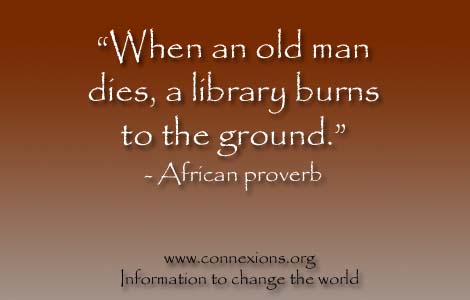
Your support is needed to keep Connexions going
All of the work of the Connexions project is done by volunteers, but our expenses include rent, phone and computer costs and technical support, as well as expenses related to our ongoing project of converting printed archival materials into digital formats. You can make a one time or regular monthly contribution through the donate page on the Connexions website.
Bequests
Many of us have made working for social justice a lifetime commitment. If you are thinking about leaving a legacy for social justice that will live on, you might want to consider leaving a bequest to Connexions in your will. If you'd like to discuss this option, please contact us or see the Bequest page.



